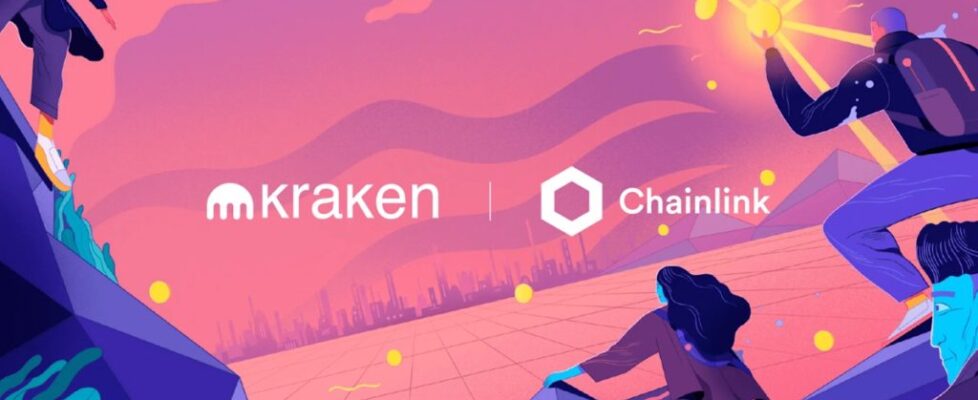Kraken brings crypto spot prices to DeFi apps with new Chainlink node
San Francisco based cryptocurrency exchange Kraken has announced that it will be making its cryptocurrency spot prices available to Decentralized Finance (DeFi) applications and developers on Ethereum and other leading blockchains, by running its own Chainlink node.
As one of the world’s largest and most liquid cryptocurrency exchanges, Kraken said that it feels it is critical to make its cryptocurrency data accessible directly on-chain to help trigger the secure and reliable execution of DeFi applications. Running its own Chainlink node will not only provide Kraken with a mechanism to broadcast its Oracle Rates on any blockchain, but it can leverage Chainlink’s built-in cryptographic signing capabilities to provide users with definitive on-chain proof of that data originating directly from Kraken.
Kraken Intelligence, the company’s in-house research team, is to release an in-depth report highlighting the risks of price manipulation and other vulnerabilities in DeFi markets to help market participants safely invest in these new opportunities. The company noted that providing Kraken spot prices through Oracle Rates is an important step towards increasing transparency and building trust in the digital asset industry.
Kraken’s spot price-based Oracle Rates can be used to obtain real-time data feeds that power a wide range of decentralized applications, such as derivatives contracts, lending applications, cross-border payments, stablecoins, automated asset management protocols, and more.
The Kraken Oracle Rates are computed by aggregating transactions conducted on the Kraken market for the direct asset pair only (no parallel markets, such as stablecoin pairs, are used). A series of safeguards are employed to mitigate against technical issues, market anomalies, or any potential manipulation of the Rates. Oracle Rates are updated every minute with time-stamped valid Kraken Oracle Rates, but if for any reason a rate has not been computed then no rate will be published for that minute.
Oracles act as middleware that retrieves external data, confirms its accuracy and authenticity, aggregates it with other sources or nodes, and then finally broadcasts it onto the blockchain to trigger smart contract execution. With time-tested technology and large adoption by smart contract developers, DeFi applications, and enterprises, Chainlink is the leading oracle solutions provider. Some of the key features available through Chainlink include:
- Data Integrity – Chainlink node will cryptographically sign each piece of data broadcast on-chain, serving as proof that the data is definitively from Kraken.
- Provide to Any Blockchain – As a blockchain-agnostic oracle network, it can use Chainlink to provide data to all blockchains that exist both now and in the future.
- Market-Wide Adoption – Chainlink is the most widely used oracle solution within DeFi and across blockchains, providing it access to a large market of users.
- Proven Security – Chainlink is thoroughly audited and has proven to secure billions of dollars in on-chain value for live DeFi applications, showcasing that it can be trusted in production to trigger high-value contracts.
Kraken stated that it is confident these on-chain data feeds will both support the current DeFi ecosystem, as well as traditional financial institutions needing high-quality data when building and interacting with new on-chain financial products.
Jeremy Welch, Kraken’s VP of Product commented:
“Kraken prides itself on the ability to look ahead and provide products and services that match market demand in a thriving cryptocurrency space. Given the growth of DeFi and the need for high-quality data feeds to keep it secure, we’re excited to make our exchange data spot prices available to DeFi developers through our own Chainlink node.
“Not only will this provide DeFi with accurate price feeds from a high-volume exchange, but we can cryptographically sign this data on-chain to prove without a doubt its origin, making it even more reliable when used to trigger automated blockchain transactions.”





